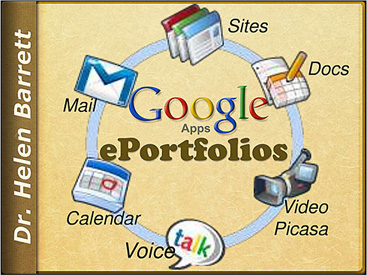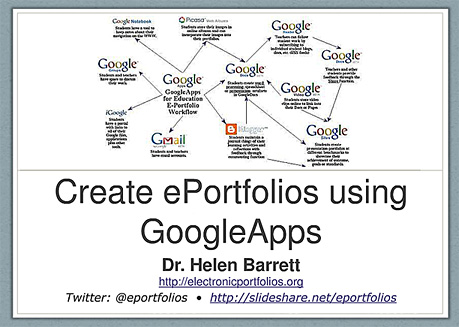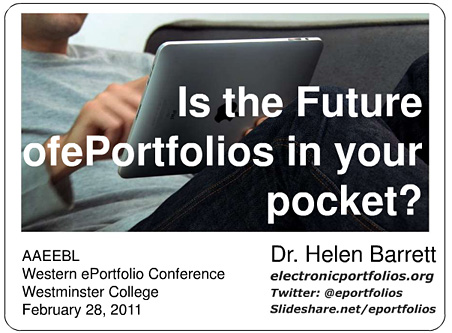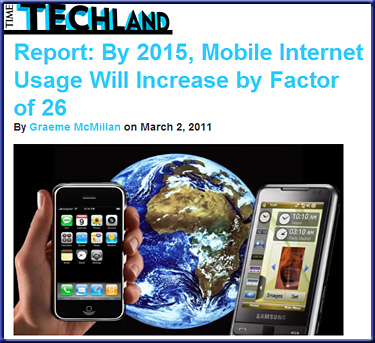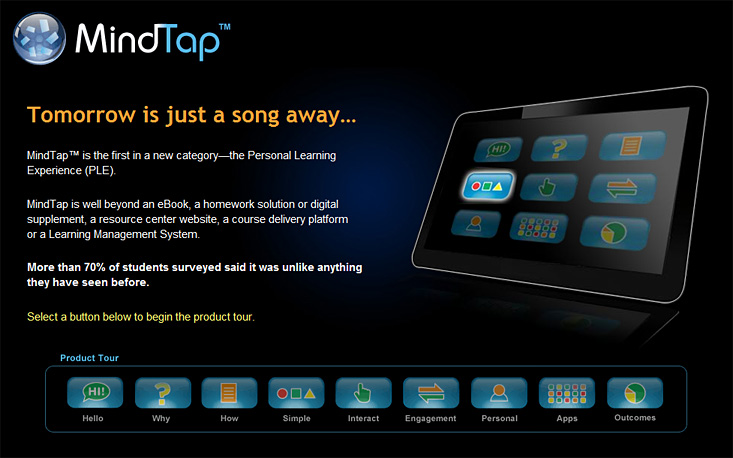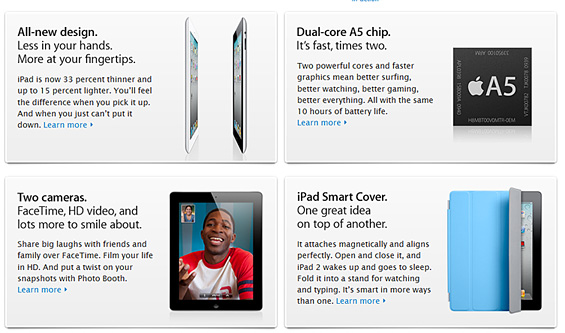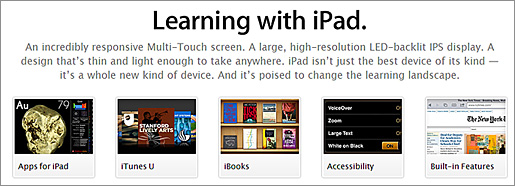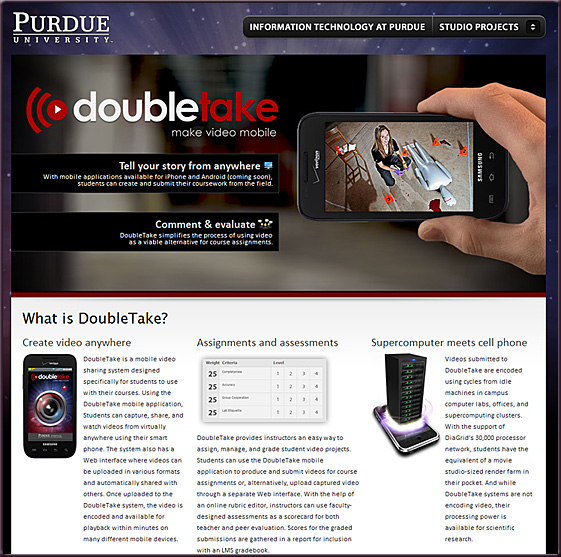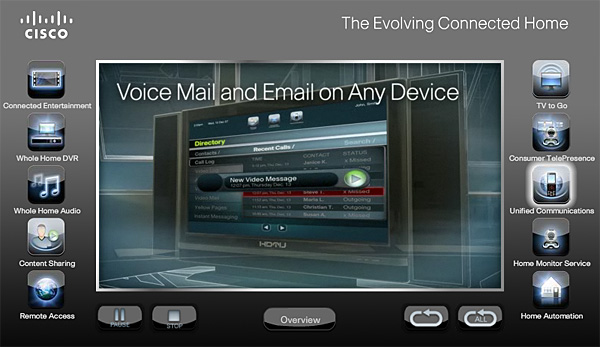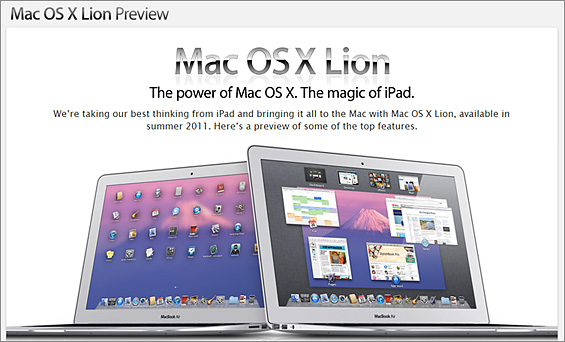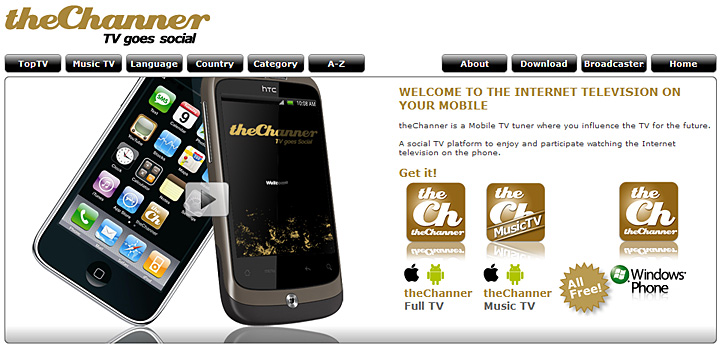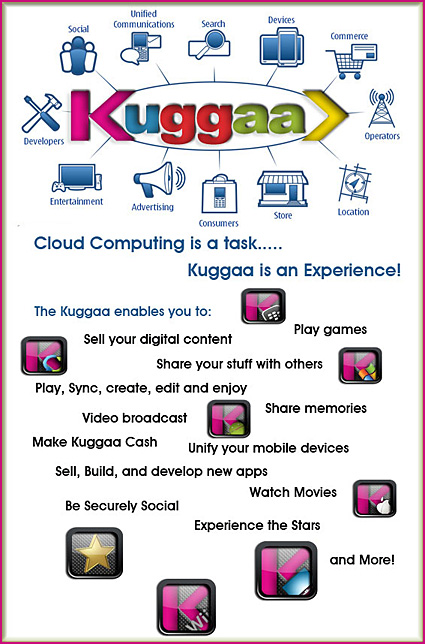
.
What is Kuggaa?
Kuggaa is a global mobile ecosystem. Kuggaa’s revolutionary ‘cloud’ based service allows its subscribers the ability to socialize, share, sync, create, edit, play, and enjoy access to their favorite content across many different mobile ecosystems at anytime from anywhere.
What Problem does Kuggaa Solve?
Device eco systems do not interoperate with competing eco systems, depriving the user of a truly global computing experience across a wide range of devices. Eco systems today are defined as device and platform specific environments that cannot be shared with other competing mobile eco systems. Smartphone and tablet owners’ are beginning to demand new ‘experiences’ in eco system functionality. Mobile computing must enable cross eco system compatibility as users buy more competing mobile devices.
What is the Solution to the Problem?
Kuggaa creates cross device integrated ‘experiences’ for consumers in a new product category dubbed ‘Global Mobile eco system.’ Kuggaa defines a global mobile ecosystem as a platform that integrates into diverse mobile devices unique shared experiences, services, relevant content, user generated media, fun apps, as well as inclusion of legacy computing platforms like the at anytime from anywhere. Kuggaa users can share, create, watch, listen, and communicate on different Tablets, smart phones, internet TV’s, and PC’s without losing the current eco systems they have adopted on their captive mobile devices.
Company Information:
Kuggaa is an Nevada Company based in Las Vegas.









